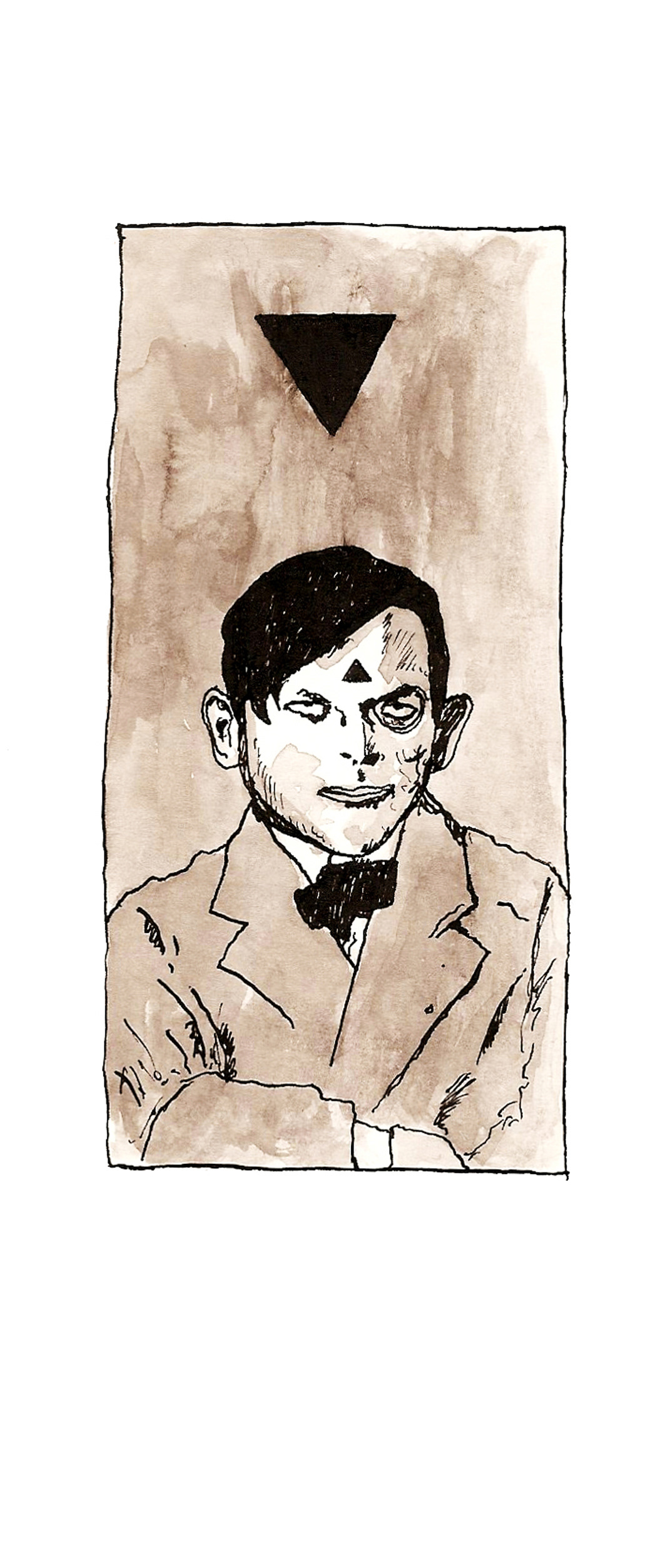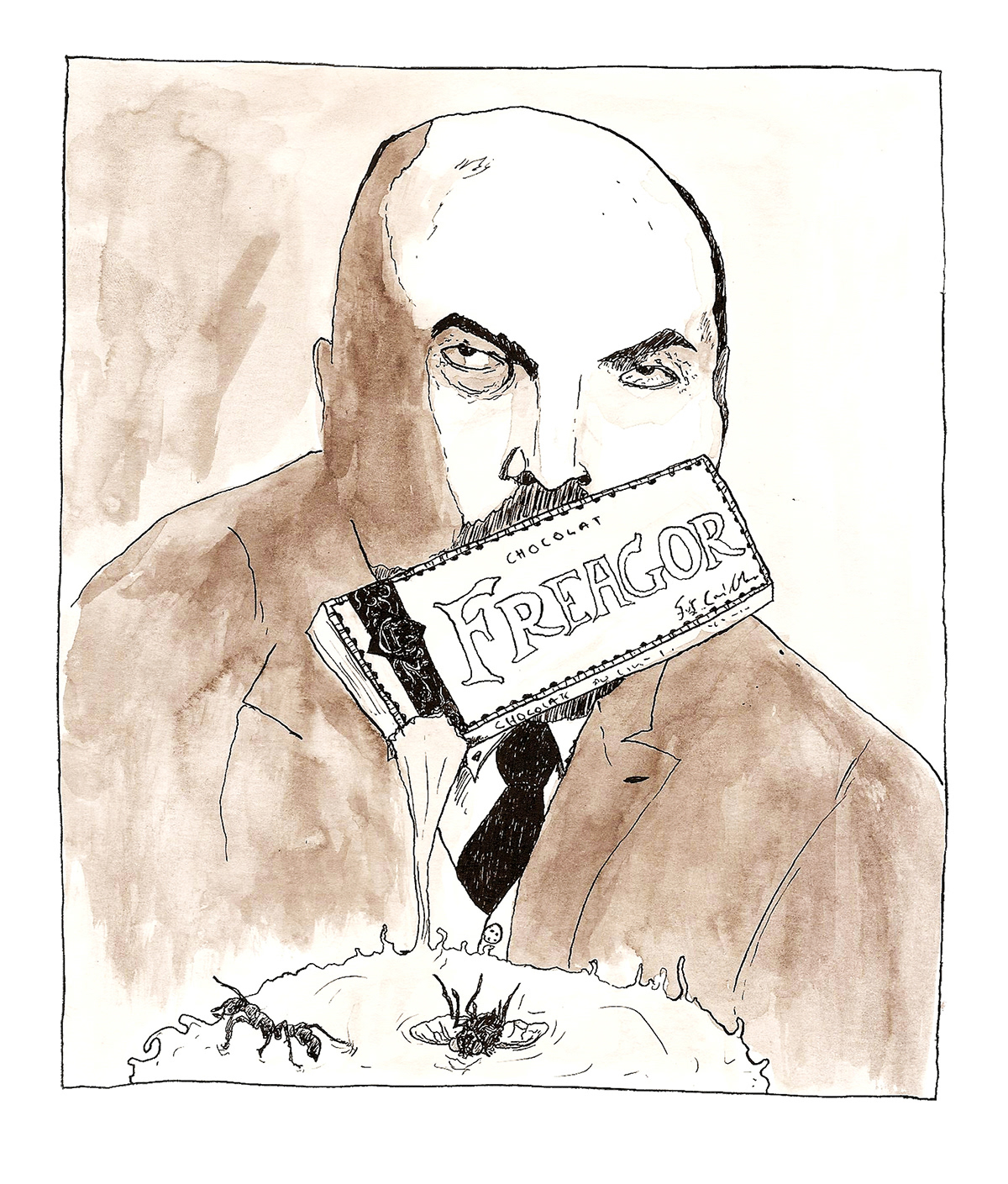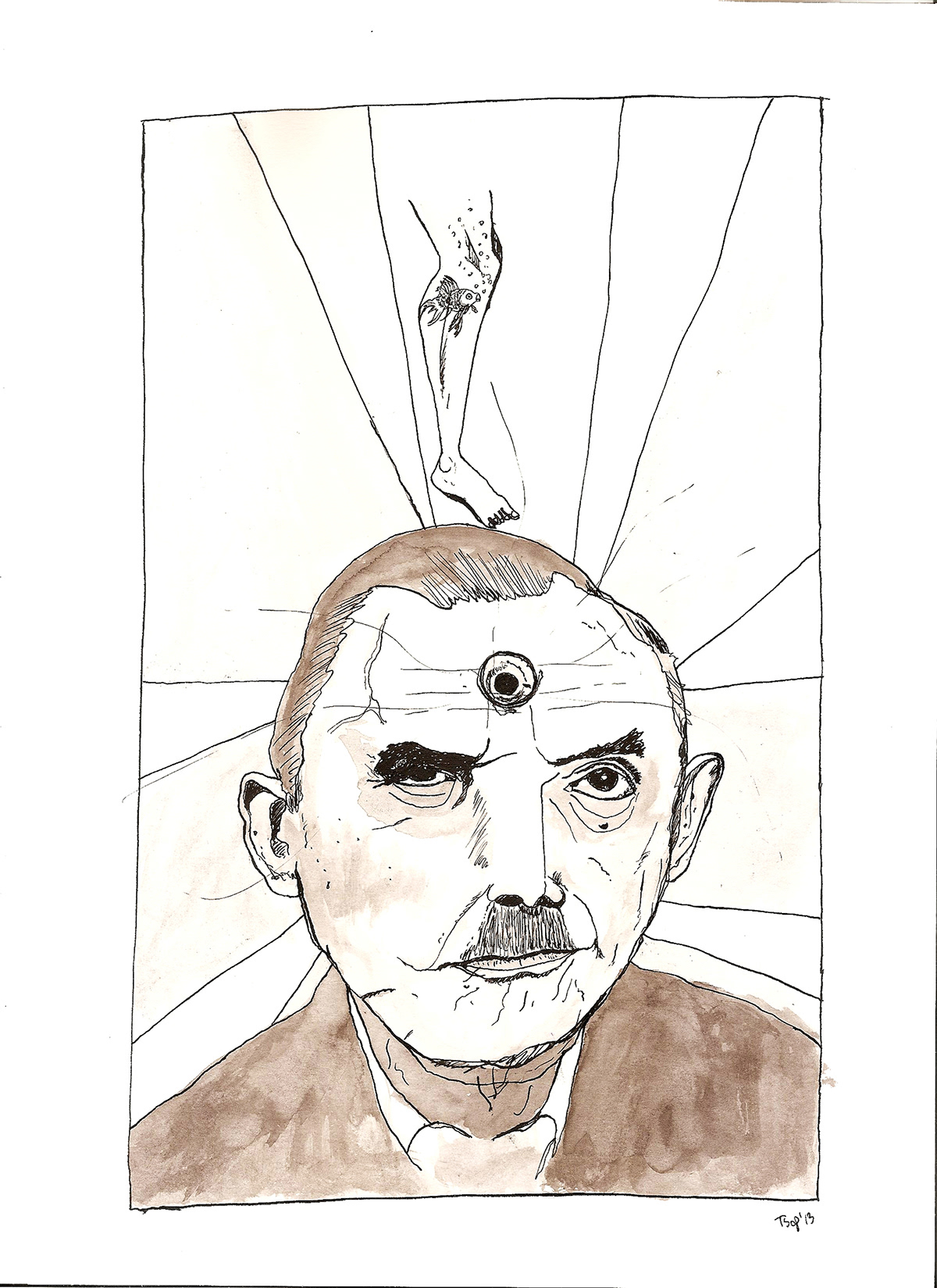
Dadaists (since 1916)
The morning of Wednesday, January 2nd of the year 1917, the sun never rose. Tristan Tzara, the young man from Romania, walks out the door of Cabaret Voltaire, in Spiegelgasse 1, after a really long New Year's Eve party with tons of forbidden absinthe and nonsense poetry. He is wearing a black suit and little lamps are shining inside him. He looks like a walking Christmas tree, he looks like celebrating the new year, the new darkness around with all this light inside him. He once stops, a few meters further, takes his hat and his shoes off, then his suit. He lies down in the snow with the lights shining in his stomach and stays there still, till the next morning, of January 3rd when everything went back to normal and the sun came up again. His colleagues and co-dadaists found him dead and totally frozen, almost buried under the snow. He was only twenty one.

Lenin (1870-1924)
When Lenin left his house of Spiegelgasse 14 in Zurich, to organize the revolution in Russia, nobody moved in it for a long time. Several years later, the owner visited the place and found chocolate bars everywhere in it, one could not even walk to reach the rooms, the house was full of chocolate and ants, dead flies and other insects that found a great opportunity to feed themselves all these three years in this strange kingdom of chocolate. The house was never cleaned up since then -almost a century-, but the authorities sealed the entrances and exits so no one can tell for sure what is going on inside it nowadays. No one admits, but the neighbors often whisper about a curse, they are said to believe that the place is haunted.

Thomas Mann (1875-1955)
Almost no one knows that Thomas Mann used to have a handicap; his left leg was made of glass. Inside the leg there was water, and inside the water, there was a goldfish living and swimming -rather delighted despite of its imprisonment. The fish in the leg was a doctor's instruction for a small period, not actually Thomas Mann's choice, it was like an alternative method for better adjustment. The point is that Mann ended up living with that goldfish for decades. The good thing was that he did not have to feed it. Never. It was being fed by itself, it was eating his memories, one memory per day, not too much of quantity, and also someone could suppose that new memories are born every day. But it seems that the last years of his life, the fish was getting always hungrier and hungrier, it started eating 2 or 3 memories per day, later 4 or 5, and since it could not recall the last time it ate, it became greedy and started eating without any control. Thomas Mann did not realize this change at the fish's behavior at once, only when a time came that he could not write because he had no memory. The white paper was like an empty coffin, never filled, buried alone. He started enjoying a feeling of happiness and relief. That's why he kept the secret for himself, forever, he and his goldfish in the leg, the only martyrs. He never went to the doctor again. He died from atherosclerosis, five years after this discovery, happy and quiet. After his death, his wife, Katja, released the fish into the Limmat.

Albert Einstein (1879-1955)
On April 16, 1905, while living in Zurich, Albert Einstein came up with a genius idea; In this world, he thought, time is like a flow of water and travelers from the future may visit our era. They are easily recognized, they wear dark indistinct clothes and walk on their toes, trying not to make a single sound , not to bend a single blade of grass. For they fear that any change they make in the past could have drastic consequences for the future.*
*taken from Alan Lightman’s “Einstein’s dreams”

James Joyce (1882-1941)
Not really many people know about the second thing that James Joyce was really obsessed with in his life. The first one was the city of Dublin, of course, as we know from his writings. He used to say "For myself, I always write about Dublin, because if I can get to the heart of Dublin I can get to the heart of all the cities of the world". But the second one was his beloved and faithful dog, named Argos, just like Ulysses' dog in Homer. Joyce adopted Argos while he lived in Zurich and spent years and years worrying that Argos will die, because at the time that he adopted him, the dog was already old. This agony caused a long termed insomnia and melancholy to the famous writer and poet, who could never actually adjust with the idea of Argos's death. James Joyce died on January 13th of the year 1941, during the second World War, probably because he could not stand the pain of a hypothetic loss. His dog is still alive.


